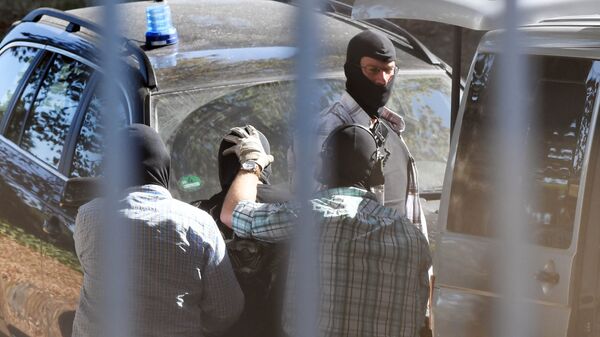After their blitzkrieg offensive in the spring of 2014, Daesh demonstrated significant strategic perseverance, FOI analyst Michael Jonsson noted. Until 2016 Daesh only sustained limited territorial losses despite being attacked on several fronts simultaneously. Since the beginning of 2016, however, the terrorist group has steadily weakened and is now likely to lose the majority of its self-proclaimed "caliphate" in Iraq and possibly also in Syria, according to the FOI analysis.
Even if Daesh is losing the war on the battlefield, the combat against the terror threat is far from over, Swedish analysts warned.
"It [Daesh's military losses] will not stop terrorist attacks in Syria and Iraq. Furthermore, the terrorists will become even more determined to carry out acts of terrorism against Western Europe," Michael Jonsson said in a video briefing published by the FOI.
In recent years, as many as 5,000 Europeans traveled to Iraq and Syria to join the terror fight, with Sweden being one of the leading exporters of jihadists in relation to the country's population of under 10 million.
It is therefore hardly surprising that the Swedish authorities keep tightening their anti-terror laws. This summer, it became illegal to travel abroad in order to commit or prepare terrorist crimes. Even participating in or providing terrorist training is now punishable with prison sentences. However, the Swedish government is poised to tighten the screws further and suggests criminalizing engagement in transportation, maintenance and cooking as part of a terrorist organization's combat operations.
"When a preliminary investigation is initiated on a suspected terrorist journey, FRA can no longer provide SÄPO with information about the details of the investigation. SÄPO forfeits thereby the ability to assess the suspect's intention and ability to commit terrorist offenses in Sweden or another country," SÄPO wrote in its assessment, as quoted by Svenska Dagbladet.
The new laws were also criticized by the Swedish Equality Ombudsman who warned of the risk that "certain ethnic and/or religious minorities" may be affected.
The Civil Rights Defenders NGO warned of dramatic consequences from a discrimination perspective.
"Since the focus of the investigation is on Islamist extremism, it implies a risk that the measures could discredit Muslims and their actions in general."





